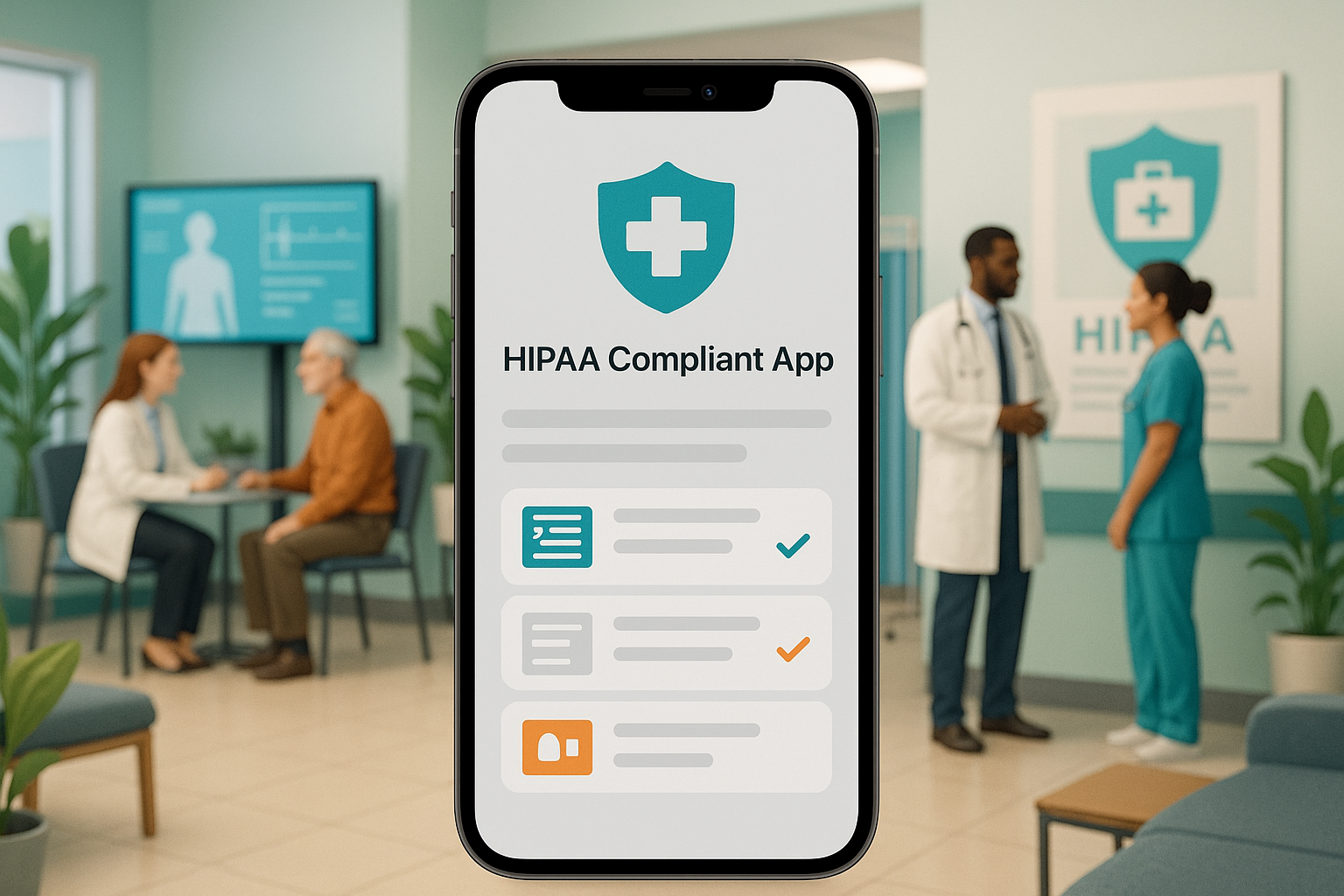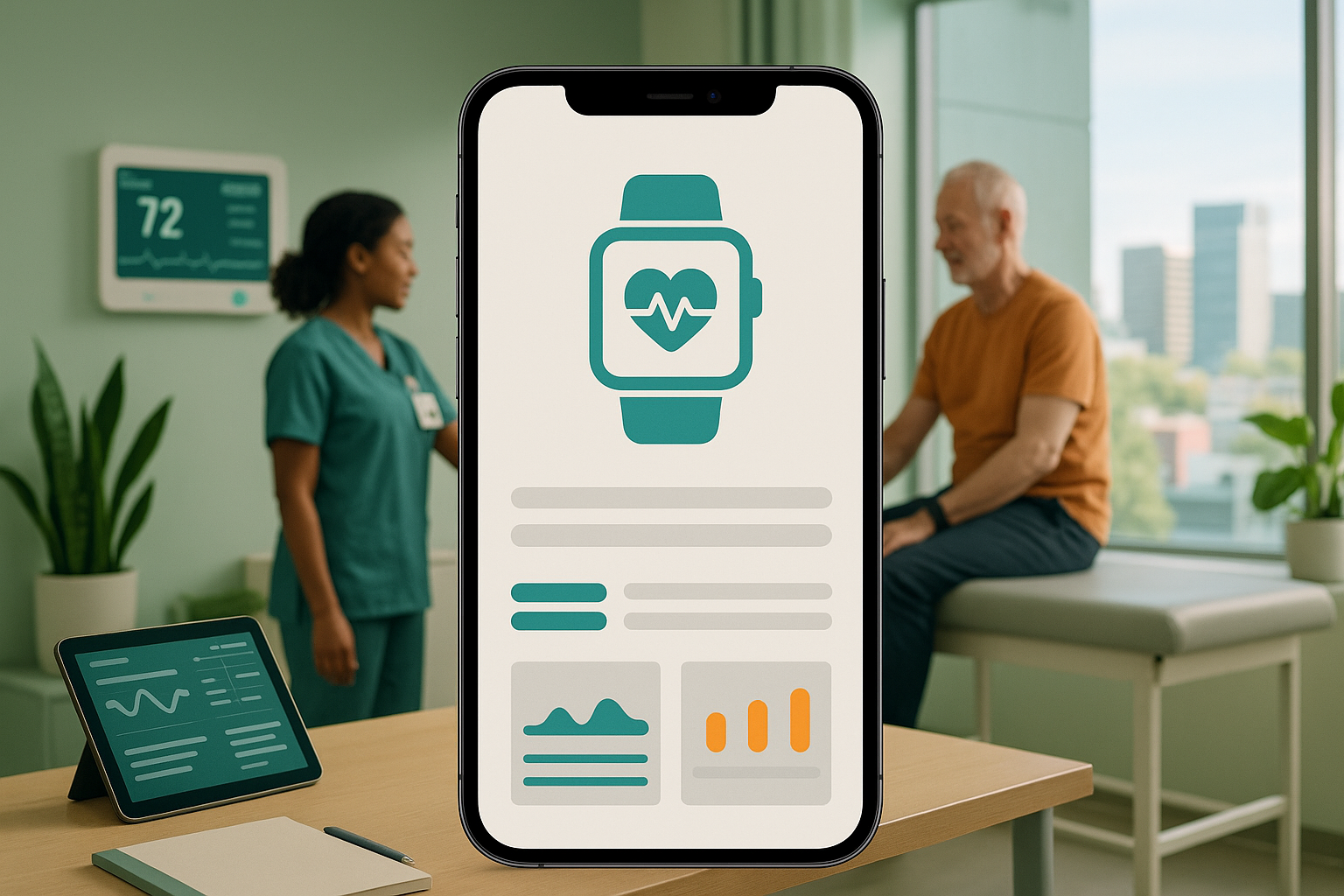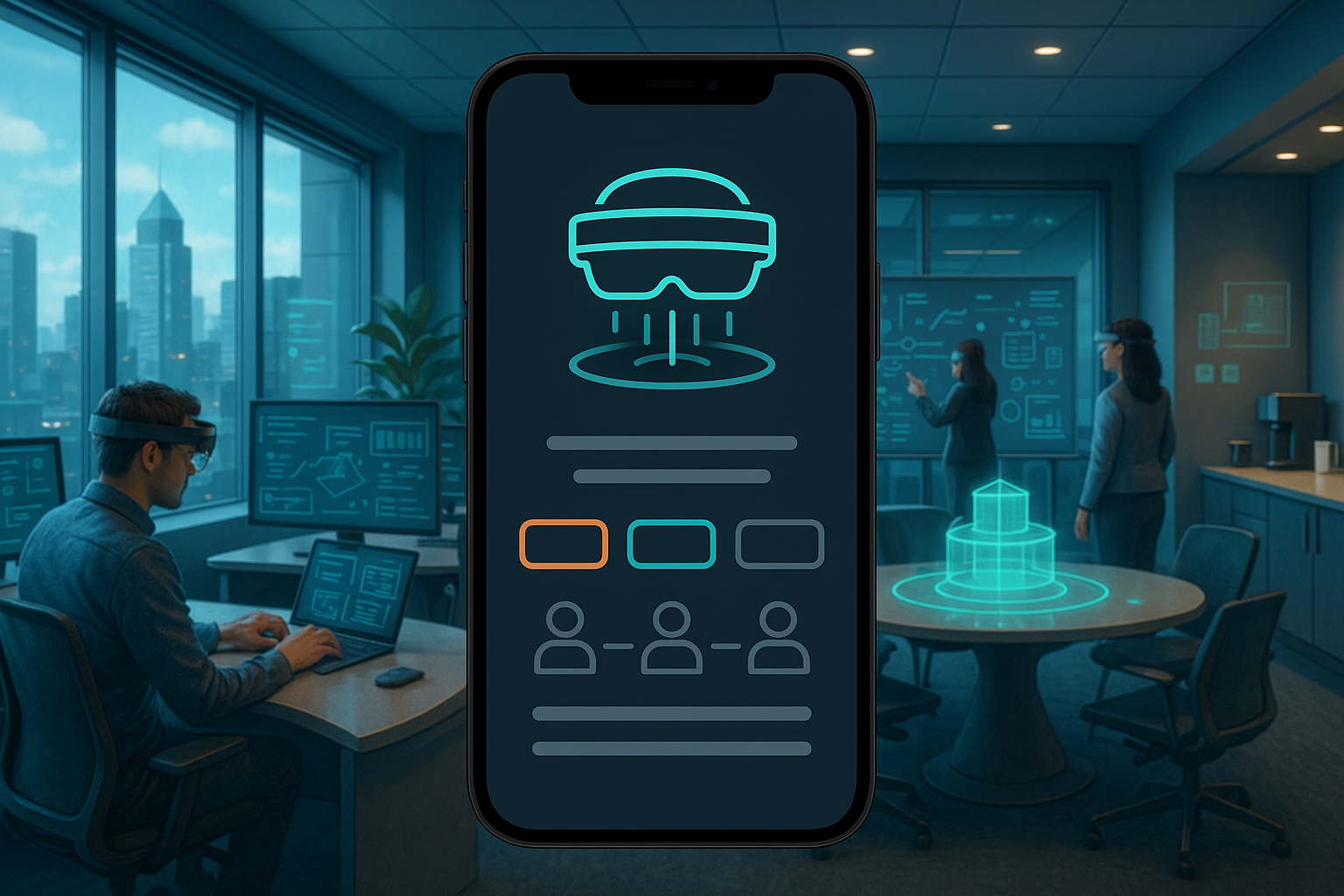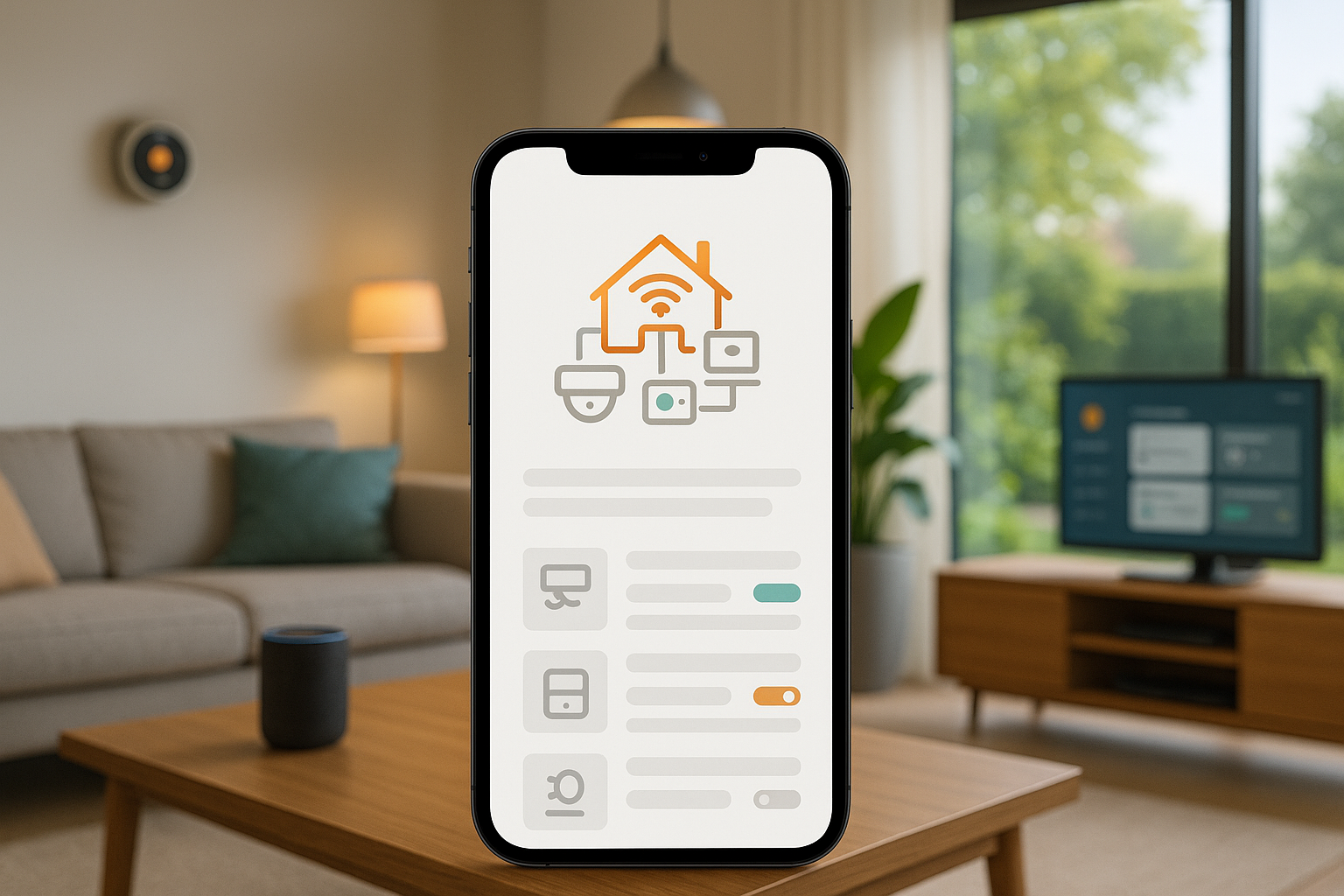The digital transformation of healthcare has unlocked unprecedented opportunities for innovation, from telemedicine platforms that connect patients with doctors across continents to AI-powered apps that provide real-time health analytics. However, with this innovation comes a profound responsibility: the protection of sensitive patient data. For any company operating in the U.S. healthcare space, adherence to the Health Insurance Portability and Accountability Act (HIPAA) is not just a best practice; it is a legal mandate. Building an application that is truly HIPAA compliant is a formidable challenge, fraught with technical complexities and regulatory nuances that can overwhelm even the most experienced development teams.
The stakes are incredibly high. A data breach can lead to devastating financial penalties, reputational damage, and a complete loss of user trust. This is why a deep understanding of HIPAA’s requirements is crucial before a single line of code is written. This guide will serve as your comprehensive resource for navigating the world of HIPAA compliant app development. We will explore what it means for an app to be HIPAA compliant, examine the significant challenges of attempting this process in-house, detail the associated costs, and introduce the leading development companies that specialize in this critical field.
As a top US AI-powered mobile app development firm with over 20 years of experience, we at MetaCTO have guided countless partners through this intricate process. We understand that integrating HIPAA compliance is not an afterthought but a foundational element of a successful healthcare application. We specialize in building secure, scalable, and innovative mobile apps that not only meet but exceed regulatory standards, ensuring your product is built right from day one.
What is a HIPAA Compliant App?
At its core, a HIPAA compliant app is a software application that handles Protected Health Information (PHI) and adheres to the stringent security and privacy rules outlined by HIPAA. These rules are designed to safeguard the confidentiality, integrity, and availability of individuals’ health information. Merely stating an app is “secure” is insufficient; compliance requires a multi-faceted approach that addresses technical safeguards, administrative policies, and physical security measures. Let’s delve into the specific technical requirements that an app must meet.
Access Control and Authentication
A fundamental principle of HIPAA is ensuring that PHI is only accessible to authorized individuals. A compliant app must impose strict restrictions on who can view or modify confidential information. This isn’t just about a simple login screen; it involves robust identity and access management.
To achieve this, the app must implement strong authentication methods. HIPAA compliant software development requires more than a simple username and password combination, which can be easily compromised. Acceptable methods include:
- Biometrics: Using unique biological characteristics for verification, such as a fingerprint, voice pattern, or Face ID.
- Passwords and Personal Identification Numbers (PINs): These should be combined with other factors or adhere to strict complexity and rotation policies.
- Physical Methods: Requiring a physical object like a security key, smart card, or token for access.
By layering these authentication methods (multi-factor authentication), an application can significantly reduce the risk of unauthorized access to sensitive PHI.
Encryption of Data at Rest and in Transit
Encryption is the cornerstone of HIPAA compliance for mobile apps. It is the process of converting readable data into an unreadable format, rendering it useless to anyone without the proper decryption key. Without robust encryption, any stored or transmitted PHI is vulnerable and can be easily read by hackers. Encryption is indispensable not only for mobile apps but also for any web applications that handle PHI.
There are two primary states in which data must be encrypted:
-
Transmission Security: This guarantees that any PHI being transmitted over a network—for example, from the mobile app to a server—is encrypted during the journey. The HTTPS protocol is a standard requirement, as it uses SSL/TLS to encrypt all communications. This should be applied universally across the app, or at a minimum, for signup screens, all pages containing PHI, and authorization cookies. Proper encryption during transmission allows data to move across networks without undue risk and guarantees its integrity.
-
Encryption at Rest: This refers to encrypting the data that is stored on a device or server. If a hacker gains access to the physical server or a user’s lost phone, encrypted data remains secure and unreadable. This ensures the data’s invariability and complete security even in the event of a physical breach.
Audit Controls and Logging
A HIPAA compliant application must have the capability to track and record all activity involving PHI. These audit controls are essential for security monitoring, detecting potential breaches, and conducting forensic analysis if an incident occurs.
The app must meticulously log events such as:
- Each time a user signs in and out of the system.
- Every access, creation, modification, or deletion of PHI.
- The specific user who performed the action and the time it occurred.
Implementing these audit controls is possible through various programming, equipment, or procedural methods. A common approach is using a dedicated table in a database or a separate log file to record all interactions with patient information. This creates an immutable trail that can be reviewed to ensure policies are being followed and to identify anomalous behavior.
Data Backup and Disposal
HIPAA requires that organizations have a contingency plan in place to protect data integrity and ensure its availability in case of an emergency or system failure. For a mobile app, this means a timely and full copy of all information must be created and stored securely.
For maximum data security, the backup should ideally be located on a server in a separate physical location, such as another data center. This geographic redundancy protects the data from localized events like natural disasters, power outages, or physical security breaches at the primary site. Furthermore, when data is no longer needed, there must be a formal process for its secure disposal to ensure it cannot be recovered.
Modern Security Architectures
The landscape of cybersecurity is constantly evolving, and modern HIPAA compliant apps should adopt advanced security paradigms to stay ahead of threats.
- Zero-Trust Architecture: This security model operates on the principle of “never trust, always verify.” It ensures that every single process, user, and device is validated and authorized before being granted access to any resource, regardless of whether they are inside or outside the network perimeter.
- AI-Based Threat Detection: Integrating artificial intelligence can significantly enhance security. AI-based systems can analyze user behavior and network traffic in real-time to detect anomalies, surface potential security holes, and identify possible breaches far faster than human administrators can.
- Automated Compliance Checks: Using Continuous Integration (CI) and Continuous Delivery (CD) pipelines allows for the introduction of automated HIPAA checks throughout the product’s lifecycle. This ensures that compliance is continuously verified with every new code commit, reducing the risk of human error.
Reasons That it is Difficult to Develop a HIPAA Compliant App In-House
While many organizations have talented in-house development teams, building a HIPAA compliant application introduces a layer of complexity that extends far beyond standard software engineering. Attempting to manage this process internally is often more challenging, time-consuming, and riskier than anticipated.
The primary reason for this difficulty is that meeting regulatory requirements like HIPAA involves a very different set of skills and expertise than typical app development. Application security professionals are experts in writing secure code and preventing common vulnerabilities, but they are not the same as compliance professionals. The latter possess a deep, nuanced understanding of the legal and administrative requirements of the HIPAA Security Rule and Privacy Rule. They know how technical safeguards must map to specific regulatory clauses and what documentation is required to prove compliance during an audit.
Building an in-house application security program that meets these stringent standards is both challenging and time-consuming. It requires:
- Extensive Research: Teams must dedicate significant time to understanding the hundreds of pages of HIPAA regulations and how they apply to their specific application’s architecture and data flows.
- Specialized Training: Developers, QA engineers, and system administrators need to be trained on HIPAA’s specific requirements, a process that takes them away from their core development tasks.
- Constant Monitoring: The regulatory landscape is not static. Teams must stay abreast of changes in regulations and evolving security threats, which is a full-time job in itself.
Ultimately, successfully navigating HIPAA compliance requires either building an internal team of compliance experts or seeking external support. For most startups and even established businesses, hiring a dedicated team of compliance professionals is not financially feasible. This is where partnering with a specialized development agency like MetaCTO becomes a strategic advantage. We provide not just the technical expertise to build your app but also the deep compliance knowledge to ensure it’s built correctly from the ground up. Our Fractional CTO services, for instance, provide the high-level strategic guidance needed to align your technology roadmap with complex regulatory requirements, saving you time, reducing risk, and allowing your team to focus on innovation.
Different Types of HIPAA Compliant Apps
The need for HIPAA compliance extends across a wide spectrum of healthcare applications. While some apps, like a simple fitness tracker that only stores step counts locally, may not handle PHI, any application that stores, processes, or transmits individually identifiable health information must comply. Here are some of the common types of healthcare apps where HIPAA compliance is critical.
-
Telemedicine Apps: These platforms facilitate remote consultations between patients and healthcare providers. They handle a vast amount of PHI, including video recordings of appointments, chat messages, prescriptions, and patient diagnoses. Ensuring this data is secure and private is paramount.
-
EHR/EMR Apps: Electronic Health Record (EHR) and Electronic Medical Record (EMR) apps provide mobile access to a patient’s comprehensive medical history. Physicians use them to review charts, update records, and place orders, making robust security and access controls absolutely essential.
-
Wellness Apps: While many wellness apps are consumer-focused and may not require compliance, those that are prescribed or used in a clinical setting often do. For example, an app that tracks blood glucose levels and shares them directly with a patient’s endocrinologist is handling PHI and must be compliant.
-
Dieting Apps: Similar to wellness apps, a dieting app that is integrated with a clinical nutrition program or a healthcare provider’s system will likely handle PHI. If it tracks health metrics related to a specific medical condition and shares that data, it falls under HIPAA’s purview.
-
Healthcare Insurance Apps: These apps allow users to manage their health insurance plans, view claims, and communicate with their insurer. They inherently handle sensitive personal and financial information linked to health status, requiring strict compliance.
-
Fitness Apps: A standard fitness app that tracks workouts for personal use is not subject to HIPAA. However, if that app is used as part of a corporate wellness program sponsored by a self-insured employer, or as part of a physical therapy regimen prescribed by a clinician, it may cross the line into handling PHI.
Cost Estimate for Developing a HIPAA Compliant App
The cost of developing a HIPAA compliant app is a significant consideration, and it varies widely based on the app’s complexity, features, chosen platform, and the development team’s location. The additional requirements for security, encryption, and auditing inherent in HIPAA compliance add to the overall investment compared to a standard application.
Generally, the cost of building a HIPAA-compliant app starts from $50,000 and can go much higher. An end-to-end development process for a native (iOS or Android) HIPAA-compliant app typically costs about $450,000, while a more complex hybrid app can cost around $650,000.
To provide a more granular view, let’s break down the costs by different categories.
Costs by App Type
The type of healthcare app you are building is a major cost driver, as complexity varies significantly.
| App Type | Estimated Cost Range |
|---|---|
| Wellness App | $25,000 – $110,000 |
| Fitness App | $20,000 – $60,000 |
| Healthcare Insurance App | $30,000 – $60,000 |
| Telemedicine App | $35,000 – $155,000 |
| EHR App | $35,000 – $100,000 |
| Dieting App | $60,000 – $140,000 |
Costs by Feature
The features included in the app also heavily influence the final price. Core features required for most healthcare apps have their own development costs.
| Feature | Estimated Development Cost |
|---|---|
| User Login and Registration | $15,000 – $20,000 |
| Scheduler | $5,000 – $10,000 |
| In-App Chat | $5,000 – $10,000 |
| Payment Gateways | $5,000 – $10,000 |
| Push Notifications | $5,000 – $25,000 |
| Geolocation | $8,000 – $16,000 |
| Reviews and Ratings | $2,000 – $5,000 |
Other Cost Factors
Several other factors contribute to the total investment:
- UX/UI Design: The cost for designing a user-friendly interface varies by platform. An Android app’s UX/UI design typically costs between $5,500 and $6,500, while an iOS app’s design costs range from $6,000 to $7,000.
- Developer Rates: The geographic location of your development partner has a significant impact on hourly rates.
| Region | Per Unit Cost (Likely Hourly) |
|---|---|
| USA | $90 – $160 |
| UK | $55 – $110 |
| Australia | $40 – $150 |
| UAE | $35 – $100 |
| India | $20 – $50 |
While the upfront cost can seem substantial, it’s crucial to view it as an investment in risk mitigation. The cost of a data breach, both in regulatory fines and loss of trust, far exceeds the cost of building the application correctly from the start.
Top HIPAA Compliant App Development Companies
Choosing the right development partner is the single most important decision you will make when building a healthcare application. An experienced partner brings not only technical skill but also the invaluable expertise in navigating the complexities of HIPAA. Here are some of the top companies excelling in HIPAA-compliant software development in 2024.
-
MetaCTO As an AI-powered mobile app development agency based in the U.S., we specialize in transforming ambitious ideas into market-ready, compliant, and successful applications. With over 20 years of experience and more than 120 successful projects launched, we handle every step of the process—from strategy and design to development, launch, and growth. Our expertise is not limited to healthcare; we are experts in integrating robust HIPAA compliance into any application, ensuring that security and privacy are woven into the fabric of your product. We leverage AI to enhance security through features like advanced threat detection and to create innovative user experiences. Our proven process helps partners launch an MVP in as little as 90 days, allowing for rapid market validation while ensuring all regulatory boxes are checked. We offer comprehensive custom mobile app development services tailored to meet the unique challenges of the healthcare industry.
-
Cabot Technology Solutions Cabot Technology Solutions specializes in developing HIPAA-compliant software solutions with a primary focus on data security and regulatory adherence. They have deep expertise in creating telemedicine platforms, EHR integrations, and innovative AI-powered healthcare tools. Cabot is committed to delivering reliable and scalable healthcare applications that are tailored to meet specific client needs while ensuring every project safeguards patient data according to HIPAA guidelines.
-
Chetu Chetu provides custom software solutions for a wide range of healthcare organizations, all designed to be HIPAA-compliant. Their end-to-end services cover the development of complex systems such as EHR/EMR platforms, practice management software, and various mHealth applications, helping streamline healthcare operations while maintaining strict compliance.
-
ScienceSoft With over three decades of experience in the IT industry, ScienceSoft is a veteran in healthcare software development. They design a variety of HIPAA-compliant applications, including sophisticated telemedicine platforms, intuitive patient portals, and powerful healthcare analytics solutions that help organizations derive insights from their data securely.
-
Kanda Software Kanda Software is well-known for its ability to create secure and robust HIPAA-compliant healthcare applications. Their portfolio includes advanced medical imaging platforms, engaging mobile health apps, and effective patient engagement solutions, all built with a strong emphasis on security and regulatory compliance.
-
Folio3 Folio3 focuses on delivering HIPAA-compliant mobile and web healthcare solutions. The company specializes in developing modern telehealth systems, executing complex EHR integrations, and building remote patient monitoring platforms that allow for continuous care outside of traditional clinical settings.
-
Arkenea Arkenea is dedicated to designing custom HIPAA-compliant healthcare software that improves efficiency and patient outcomes. Their areas of expertise include patient scheduling systems, comprehensive telemedicine platforms, and AI-driven analytics tools that provide actionable insights for healthcare providers.
-
Itransition Itransition offers a broad range of HIPAA-compliant healthcare software development services. Their work includes creating mobile health applications, building and integrating EHR systems, and developing data analytics platforms designed to streamline clinical and administrative workflows securely.
-
OSP Labs OSP Labs specializes in developing custom healthcare software solutions that are built from the ground up to adhere to HIPAA regulations. They place a strong emphasis on the secure and compliant management of patient data across all their projects, from mobile apps to large-scale enterprise systems.
-
SparxIT SparxIT provides end-to-end software development services, including the creation of healthcare applications designed to meet all HIPAA compliance standards. Their primary focus is on safeguarding sensitive health information through robust architecture and secure development practices.
-
Ailoitte Technologies Ailoitte Technologies delivers innovative healthcare software solutions with a core focus on HIPAA compliance. They work to ensure the confidentiality and security of all patient information, building trust between patients, providers, and their technology platforms.
-
Flatirons Development Flatirons Development provides custom healthcare software development services that are fully compliant with HIPAA regulations. Their development process places a strong emphasis on data security and patient privacy, making it a central pillar of their project execution.
-
Mindbowser Mindbowser offers comprehensive digital transformation and product engineering services, which include building healthcare solutions that ensure HIPAA compliance. They specialize in secure patient data management systems and modernizing legacy healthcare IT infrastructure.
-
Cyblance Cyblance delivers custom web and mobile application development services for the healthcare sector. Their HIPAA-compliant solutions are designed to prioritize data security and patient confidentiality, ensuring that all applications meet the necessary regulatory standards.
-
KMS Healthcare KMS Healthcare is a specialized firm that focuses on developing healthcare software solutions adhering to strict HIPAA standards. Their work is centered on ensuring the robust protection of sensitive patient information across a variety of healthcare technology projects.
All of these companies have a proven track record in delivering secure, scalable, and user-friendly healthcare applications tailored to the demands of the modern healthcare ecosystem.
Conclusion
Navigating the landscape of HIPAA compliant app development is a journey that demands precision, expertise, and an unwavering commitment to security. As we’ve explored, true compliance is not a feature but a foundation, encompassing strict access controls, robust encryption, diligent audit trails, and secure data management protocols. The technical and regulatory hurdles make in-house development a significant challenge, often requiring specialized knowledge that falls outside the scope of traditional software engineering.
The cost of building a compliant app reflects this complexity, but it is a necessary investment to protect patients, mitigate risk, and build a trustworthy brand in the healthcare space. By understanding the potential costs and the factors that influence them, you can better plan your budget and strategy.
Choosing the right development partner is paramount. An agency with a proven track record in HIPAA compliance can be the difference between a successful launch and a costly failure. They provide not just the code, but the strategic guidance to ensure every aspect of your application is secure and defensible.
Ready to build your secure, scalable, and fully compliant healthcare app? The journey from idea to a market-ready product can be complex, but you don’t have to navigate it alone. Talk with an expert at MetaCTO today to discuss how we can integrate robust HIPAA compliance into your product and bring your vision to life.






